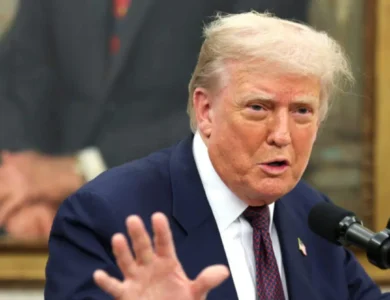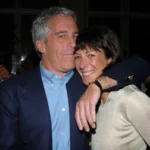Ilhan Omar Reacts to the Catholic School Shooting in Her Minnesota District

Minnesota Congresswoman Ilhan Omar (D) has been the focus of media attention following a horrific shooting at the Annunciation Catholic School in her district.
Omar, who has been criticized in the past for her anti-Semitic and anti-Christian statements, has made several appearances on cable news television following the deadly attack on Wednesday that left two children dead and 17 more people injured.
While on CNN, Omar attempted to strike a conciliatory tone.
“When Congress returns next week, I am calling on my colleagues, for us to put aside our differences and recognize that partisanship is not saving our children,” she remarked on X.
“We need to figure out a way as a nation to resolve this uniquely American issue,” she claimed. “Enough is enough.”
Omar, by referring to the “uniquely American” issue, is obviously referring to the presence of hundreds of millions of firearms that are owned by law-abiding American citizens in the country.
When Congress returns next week, I am calling on my colleagues, for us to put aside our differences and recognize that partisanship is not saving our children.
— Rep. Ilhan Omar (@Ilhan) August 28, 2025
We need to figure out a way as a nation to resolve this uniquely American issue. Enough is enough. pic.twitter.com/E7ZkVikFo9
Congresswoman Omar also appeared on MSNBC and lauded the power of prayer, but clearly blamed firearms for the atrocity committed by a radicalized, transgender-identifying individual.
She also released the following statement after the tragic mass shooting.
“I am beyond heartbroken over the tragic news of the shooting at the Annunciation Catholic School in Minneapolis. The loss of life is unthinkable. As a mom and Minneapolis resident, my heart is utterly shattered. I will keep praying for all the families impacted by this tragedy.
“I am especially thinking of the two beautiful children who lost their lives in this senseless act of violence. While we do not yet know the shooter’s specific motivations, we do know that children and schools are all too often the victims of horrific violence in this country. We cannot continue to fail our kids with the lack of federal action. It is beyond despicable that elected leaders are more concerned with appeasing the gun lobby than keeping our children safe. The horror that children and educators went through today, while they were praying, should not have happened. I am committed to do everything I can to stop these tragedies from occurring ever again.
“I will continue to closely monitor the situation and provide updates. Today our country failed our kids and I will not allow elected leaders to move on or forget this horror.”
However, Minneapolis Police Chief Brian O’Hara claims that the motive for the shooting is “unknown.”





